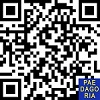PROBLEMS OF ONLINE LEARNING DURING THE COVID-19 PANDEMIC IN GENERATION Z
Abstract
Abstrak: Pandemi Covid-19 secara cepat membawa perubahan dalam berbagai aspek kehidupan manusia termasuk pembelajaran yang dilakukan pada pendidikan formal di Perguruan Tinggi. Mahasiswa pada jenjang S1 adalah generasi Z yang identik dengan teknologi. Namun, berbagai fenomena menunjukkan bahwa mereka juga mengalami problematika dalam pembelajaran daring. Penelitian ini bertujuan untuk mengetahui problematika pembelajaran daring di masa pendemi Covid-19 pada generasi Z. Pendekatan penelitian adalah kuantitatif dengan metode deskriptif. Sampel penelitian sebanyak 70 mahasiswa yang ditetapkan menggunakan purposive sampling. Data dikumpulkan menggunakan angket dan dianalisis dengan menggunakan persentasi dan dideskripsikan. Hasil penelitian menunjukkan problematika pembelajaran daring di masa pandemi Covid-19 pada generasi Z meliputi: ketiadaan smartphone (1%), ketiadaan paket data (12%), berbagai permasalahan teknis (11%), tidak menguasai aplikasi (7%), sulit memahami materi (10%), kesulitan dalam mengerjakan tugas (16%), permasalahan waktu perkuliahan (9%), permasalahan terkait metode mengajar dosen (8%), ketidakseriusan dalam mengikuti kuliah (8%), dan mengalami kejenuhan mengikuti perkuliahan daring (18%).
Abstract: The Covid-19 pandemic quickly brought about changes in various aspects of human life including learning conducted in formal education in higher education. Students at undergraduate level are generation Z who are synonymous with technology. However, various phenomena show that they also experience problems in online learning. This study aims to find out the problem of online learning in the era of Covid-19 protesters in generation Z. Research approach is quantitative with descriptive methods. A sample of 70 students was determined using purposive sampling. The data was collected using questionnaires and analyzed using percentages and described. The results showed problems of online learning during the Covid-19 pandemic in generation Z including: the absence of smartphones (1%), the absence of data packages (12%), various technical problems (11%), not mastering the application (7%), difficulty understanding the material (10%), difficulty in doing tasks (16%), problems of lecture time (9%), problems related to teaching methods of lecturers (8%), seriousness in attending lectures (8%), and experiencing saturation following lectures online (18%).Keywords
Full Text:
DOWNLOAD [PDF]References
Akhtarul Islam, M., Barna, S. D., Raihan, H., Nafiul Alam Khan, M., & Tanvir Hossain, M. (2020). Depression and anxiety among university students during the COVID-19 pandemic in Bangladesh: A web-based cross-sectional survey. In PLoS ONE. https://doi.org/10.1371/journal.pone.0238162
Amir, L. R., Tanti, I., Maharani, D. A., Wimardhani, Y. S., Julia, V., Sulijaya, B., & Puspitawati, R. (2020). Student perspective of classroom and distance learning during COVID-19 pandemic in the undergraduate dental study program Universitas Indonesia. BMC Medical Education. https://doi.org/10.1186/s12909-020-02312-0
Bolatov, A. K., Seisembekov, T. Z., Askarova, A. Z., Baikanova, R. K., Smailova, D. S., & Fabbro, E. (2020). Online-Learning due to COVID-19 Improved Mental Health Among Medical Students. Medical Science Educator. https://doi.org/10.1007/s40670-020-01165-y
Cao, W., Fang, Z., Hou, G., Han, M., Xu, X., Dong, J., & Zheng, J. (2020). The psychological impact of the COVID-19 epidemic on college students in China. Psychiatry Research. https://doi.org/10.1016/j.psychres.2020.112934
Center, P. R. (2010). Millennials: A portrait of generation next. Statistics, February, 1–149. http://www.pewsocialtrends.org/files/2010/10/millennials-confident-connected-open-to-change.pdfnhttp://scholar.google.com/scholar?hl=en&btnG=Search&q=intitle:Millennials:+A+Portrait+of+Generation+Next#1nhttp://pewresearch.org/millennials/
Chakraborty, P., Mittal, P., Gupta, M. S., Yadav, S., & Arora, A. (2020). Opinion of students on online education during the COVID-19 pandemic. Human Behavior and Emerging Technologies. https://doi.org/10.1002/hbe2.240
Lassoued, Z., Alhendawi, M., & Bashitialshaaer, R. (2020). An exploratory study of the obstacles for achieving quality in distance learning during the covid-19 pandemic. Education Sciences. https://doi.org/10.3390/educsci10090232
Merriman, P. (2017). Mobilities III: Arrivals. Progress in Human Geography, 41(3), 375–381. https://doi.org/10.1177/0309132516635948
Mohr, K. A. J. (2017). Understanding Generation Z students to promote a contemporary learning environment. Journal on Empowering Teaching Excellence, 1, 9. http://files/10203/Mohr_2017.pdfhttps://digitalcommons.usu.edu/cgi/viewcontent.cgi?article=1005&context=jete
Moore, J., Dickson-Deane, C., & Galyen, K. (2011). E-learning, online learning, and distance learning. Internet and Higher Education, 14(2), 129–135. http://dx.doi.org/10.1016/j.iheduc.2010.10.001
Poór, J., Juhász, T., Machová, R., Bencsik, A., & Bilan, S. (2018). Knowledge management in human resource management: Foreign-owned subsidiaries’ practices in four CEE countries. Journal of International Studies, 11(3), 295–308. https://doi.org/10.14254/2071-8330.2018/11-3/23
Purnomo, A., Ratnawati, N., & Aristin, N. F. (2016). Pengembangan Pembelajaran Blended Learning Pada Generasi Z. Jurnal Teori dan Praksis Pembelajaran IPS, 1(1), 70–76. https://doi.org/10.17977/um022v1i12016p070
Schwieger, D., & Ladwig, C. (2018). Reaching and Retaining the Next Generation: Adapting to the Expectations of Gen Z in the Classroom. Information Systems Education Journal, 16(3), 45–54.
Seemiller, C., & Grace, M. (2017). Generation Z: Educating and Engaging the Next Generation of Students. About Campus: Enriching the Student Learning Experience, 22(3), 21–26. https://doi.org/10.1002/abc.21293
Sharpee, T. O., Destexhe, A., Kawato, M., Sekulić, V., Skinner, F. K., Wójcik, D. K., Chintaluri, C., Cserpán, D., Somogyvári, Z., Kim, J. K., Kilpatrick, Z. P., Bennett, M. R., Josić, K., Elices, I., Arroyo, D., Levi, R., Rodriguez, F. B., Varona, P., … Chhabria, K. (2016). 25th Annual Computational Neuroscience Meeting: CNS-2016. BMC Neuroscience, 17(S1). https://doi.org/10.1186/s12868-016-0283-6
Sugiyono. (2017). Sugiyono, Metode Penelitian. Penelitian, 34–45. https://doi.org/10.1021/ol7029646
Wahyuda, & Santosa, B. (2015). Dynamic Pricing in Electricity: Research Potential in Indonesia. Procedia Manufacturing, 4, 300–306. https://doi.org/10.1016/j.promfg.2015.11.044
Wang, X., Hegde, S., Son, C., Keller, B., Smith, A., & Sasangohar, F. (2020). Investigating mental health of US college students during the COVID-19 pandemic: Cross-sectional survey study. Journal of Medical Internet Research. https://doi.org/10.2196/22817
Zhafira, N. H., Ertika, Y., & Chairiyaton. (2020). Persepsi Mahasiswa Terhadap Perkuliahan Daring Sebagai Sarana Pembelajaran Selama Masa Karantina Covid-19. Jurnal Bisnis dan Kajian Strategi Manajemen, 4, 37–45.
DOI: https://doi.org/10.31764/paedagoria.v12i1.4044
Refbacks
- There are currently no refbacks.
Copyright (c) 2021 Erly Oviane Malelak, Joris Taneo, Delsylia Tresnawaty Ufi

This work is licensed under a Creative Commons Attribution-ShareAlike 4.0 International License.
Paedagoria : Jurnal Kajian, Penelitian dan Pengembangan Kependidikan
Fakultas Keguruan & Ilmu Pendidikan | Universitas Muhammadiyah Mataram.
_______________________________________________
 | Paedagoria : Jurnal Kajian, Penelitian dan Pengembangan Kependidikan |
______________________________________________
CURRENT INDEXING:
EDITORIAL OFFICE:

















